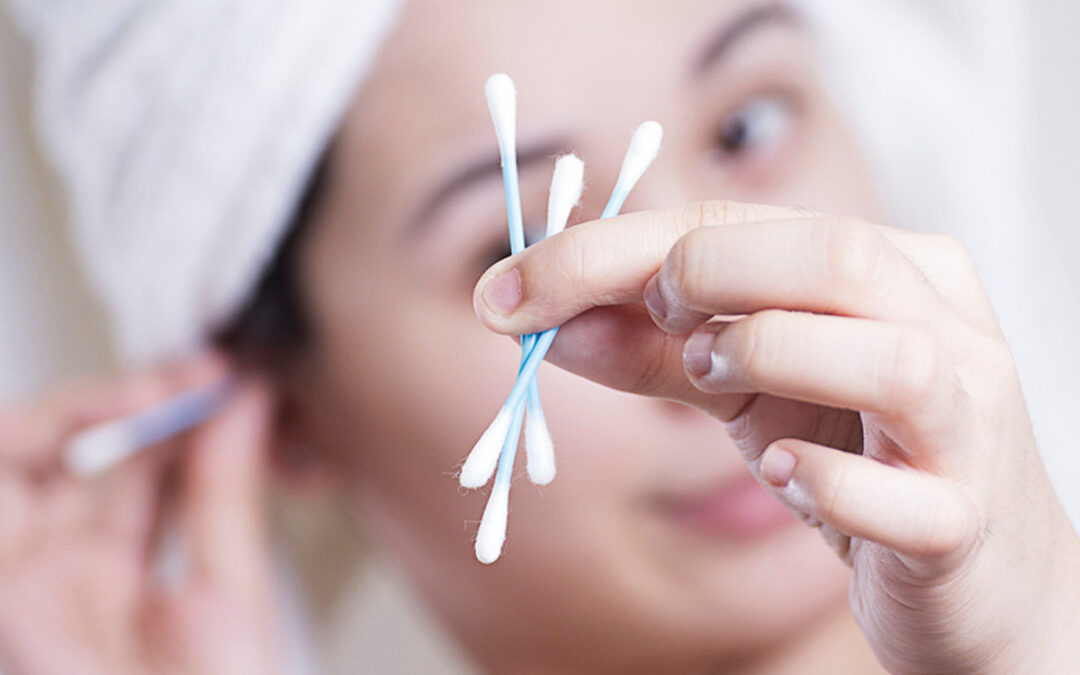Cotton swabs are great for applying makeup and applying ointment to a cut. They are also great for cleaning things such as keyboards and belly buttons. But, what they are not great for is cleaning ears. Don’t let the size of a cotton swab fool you. Even though it can fit inside your ear, doesn’t mean it should go in there. Lemme Audiology Associates suggests never sticking anything smaller than your elbow inside your ears to clean them.
Most people think they are cleaning the wax out of their ears when they slide the cotton swab into their ear canal and rotate it around. When they take the swab out of their ear and discover wax on it, they think they got the job done. But, what they are really doing is just pushing their ear wax further into their ear and closer to their ear drum. Pushing wax up against the ear drum can muffle your hearing.
People have even unintentionally punctured and damaged their ear drum with cotton swabs while attempting to clean their ears. A punctured ear drum can cause pain and leave you open to middle ear infections.
Before a hearing evaluation is performed, our Audiologists look inside our patients ears with their otoscopes to look for impacted wax or any damage to the ear drum. On some occasions, our Audiologists have found pieces of cotton swabs in their patients’ ears. Having a foreign body stuck in your ear is never a good thing. A piece of cotton swab left behind in your ear can cause muffled hearing and even an infection.
For the most part, you don’t need to clean the wax out of your ears because your ears are self cleaning. Your ear wax will move along your canal until it dries, flakes, and falls out of your ear. So, you really don’t need to stick cotton swabs, the arms of your glasses, keys, paper clips, pencils or pens in your ears to clean them out. Your ear wax is actually protecting your ears from bacterial and fungal growth, as well as blocking dust, dirt, and bugs from entering. So, cleaning your ears when it’s not needed can do more harm than good.
If your ear wax builds up and causes an impaction though, it will need to be removed manually. Talk to your doctor, ENT, or Audiologist to see if using over-the-counter earwax drops, to soften the wax impaction, would be right for you.

